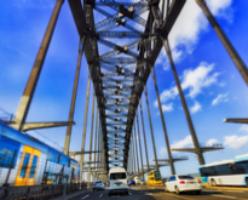Adrian1980uk
Member
- Joined
- 24 May 2016
- Messages
- 495
It's the issue with all public industry, to short termist. If you had a target of electrification by 2050 and set the budget over that time and left the industry to get on with it, you'd get there but even if you set that target now, it will change, budgets will be cut with promises of jam tomorrow.The entire DfT and Treasury strategy appears to be to make rail as off putting as possible.
Compare with Transport for London; revenue there and ridership seems far above many of the TOC in inner London. That's with strikes and also away from the Elizabeth line. London Overground for example is going great guns.
Cutting, cutting cutting often costs more than it saves in certain areas with high fixed costs like rail. DfT and Treasury seem too short termist/stupid to realise.
With London TOCs like SWR, Southern and SE having seen services axed in inner London, TfL have maintained service levels generally and reaped higher ridership and revenue now back above 2019 levels. Yes after inflation its not as strong as it would have been but that crucially still seems to be growing too.
Your point with TfL is exactly right, run the service you stand a chance of passengers using it and revenue from it, don't run the service you know the revenue will be 0.

